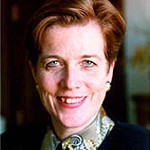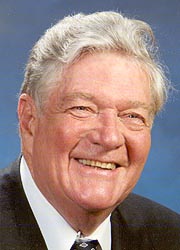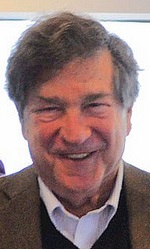Md. voters get to choose a new lawyer: What does an attorney general really do?
With about 750 employees, and nearly two-thirds of them attorneys, the Office of the Attorney General is considered the largest law firm in the state.
Only three men have held the position over the last 35 years. Voters will pick a new one this year, as Attorney General Doug Gansler runs for governor.
The office provides counsel to virtually all state agencies and all three branches of state government — legislative, executive and the judiciary. The attorney general is also charged with being the “people’s lawyer,” which includes enforcing consumer protection and civil rights laws.
The OAG duties include enforcing Medicaid fraud, environmental crime, securities and investment fraud and antitrust laws, as well as overseeing all criminal court cases at the appellate level.
Guardian of the law
“You are the guardian of the law,” said Eleanor Carey, a deputy attorney general under Stephen Sachs, who served as attorney general from 1979 to 1987. “The AG both represents the state and advises state agencies, but his or her main duty is to the people of the state.”
Making the state obey the law was one of the key slogans of the Sachs campaign.
The OAG’s written opinions are legally binding on state agencies, though not on the courts, and can often settle disputes among government agencies. The office advises the legislature and the governor on whether laws are constitutional and can be passed and signed into law.
The attorney general also argues on behalf of the state at the federal level and before the U.S. Supreme Court.
Representing state agencies
“Three quarters or more of what we do is representing state agencies as clients,” said Deputy Attorney General J. B. Howard. “There are 450 lawyers spread across 60 units. Most of what the attorney general does in managing the office involves conferring with his two deputies on office oversight issues.”
Howard said the principal counsels of the agencies bring any issues to the deputy attorneys general that the attorney general might be asked about, and the AG will be briefed on it.
“With regard to our role in the mortgage foreclosure settlement with the major banks, for example, the attorney general would himself decide what position we want to take and what kind of relief for homeowners we want to bring back.”
Pursuing policy interests: Domestic violence
The attorney general also may have their own set of policy interests which they are able to pursue using their bully pulpit, said AARP Maryland Executive Director Hank Greenberg. Greenberg worked for Sachs and Attorney General J. Joseph Curran, who served for 20 years from 1987 to 2007.
Domestic abuse was on the rise in the early 1990′s and Curran had an important role in shaping national policy, Greenberg said.
“I was concerned about family violence,” said Curran, “We assembled a group of people in and outside the [attorney general’s] office and tried to figure out what was working and what wasn’t.”
Curran and his team, which included Carolyn Quattrocki, now executive director for the governor’s Office of Health Care Reform, soon learned that out-of-state court orders for domestic abuse victims couldn’t be enforced in Maryland.
“So we had the law changed,” said Curran.
During that time, Curran also had his office post notices in “beauty parlors,” informing women whom they could talk to about domestic abuse.
“I felt privileged,” Curran said. “Our office was the spokesperson on the issue of family violence.”
Curran also argued a case before the U.S. Supreme Court in 1990, Maryland v. Craig, which had been appealed from the Maryland Court of Appeals. The high court ruled in favor of Maryland — alleged child sex abuse victims could testify by way of closed circuit television, rather than in the presence of their alleged offender.
During Curran’s term 14 or 15 cases went to the Supreme Court, he said.
Antitrust enforcement, redistricting and civil rights
Sachs said during his term as attorney general, his team went after barber shops for violating antitrust laws.
“The barbers were controlled by the people that ran the barber shops,” Sachs said. “You couldn’t get to be a barber or master barber unless you went to their schools.”
Sachs also audited elections on the Eastern Shore where redistricting had created a disadvantage for African American voters. And he stopped the practice of “warehousing” developmentally disabled citizens into institutions for the insane who, he said, could clearly be integrated into normal society.
“For local elections, we found the districts were rigged up so that African Americans, even though they had a significant portion of the population, were only eligible – because of redistricting – to elect a relatively minor number of people,” Sachs said. “It was in violation of federal law, and we made them change that.”
Sachs also initiated a volunteer recruitment program to hear grievances from residents for eventual mediation, Curran said. “We continued it and expanded it into a health unit when an insurance company would deny coverage on a medical procedure.”
In 2008, Gansler spearheaded a settlement against rental car companies that were charging excessive refueling charges.
“We threatened an enforcement action against the rental car companies and got a settlement putting constraints on what they could charge for refueling charges,” Howard said. “The attorney general wanted to use the power of the office to fix a problem that struck him as unfair and probably unlawful.”
Hiring new attorneys
Gansler also started a new practice of conducting final interviews for all new attorneys hired to the office, Howard said. Before Gansler came on board the attorney general wouldn’t meet with prospective hires. Now Gansler conducts the final interview, along with his two deputies, and personally extends the offer to join the office.
“That was quite time consuming for him, but it mattered a lot to him because he cared about making sure we brought in the best people under his watch.”
Currently Gansler is reaching out to e-cigarette manufacturers questioning the companies’ marketing practices to teens and children and asking what is being done to address the recent uptick in CDC reported poisonings. Gansler cited a recent Centers for Disease Control (CDC) study showing a spike in calls to CDC related to problems with e-cigarette refill cartridges. Fifty-percent of the calls involved children under the age of five.
Relationships with the governor
Prior to Sachs, the attorney general ran on a ticket with the governor and comptroller.
“It used to be the attorney general was beholden to the governor because they used to run together,” Carey said.
“Sachs really stopped that,” Carey recalled. “The theory was the AG is really supposed to be independent. The AG needs that independence because there are times when you have to tell state agencies, no the law doesn’t permit you to do that.”
Sometimes conflicts do arise and every once in a while there is an exception, Curran said.
Curran said Gov. William Donald Schaefer asked him not to join an anti-trust lawsuit against insurance companies.
“We joined it,” Curran said. “It was a national issue. We went to court and we didn’t win. Then on appeal we won.
In another situation, “[Gov.] Bob Ehrlich didn’t want us to do something, but it is our responsibility. We did it and we won.”
“The Office of the Attorney General is the governor’s lawyer and also the people’s lawyer,” Curran said. “You have to do what is right.”
Endorsements
Both Sachs and Curran have endorsed Montgomery County Sen. Brian Frosh for attorney general in the 2014 election.
Sachs said he didn’t think Frosh’s opponents were qualified to be attorney general.
“I don’t think Jon Cardin is qualified for the office, especially alongside Brian Frosh. Brian Frosh is enormously qualified.”
Of Prince Georges County Del. Aisha Braveboy, Sachs said, “I would say the same with Del. Braveboy, with a footnote – at least not yet!”
Cardin has been endorsed by his uncle, U.S. Sen. Ben Cardin, by former Gov. Marvin Mandel, and by a number of fellow members of the House of Delegates.
“Jon has made a name for himself in Annapolis the past 12 years and I am confident that he will make an excellent attorney general,” said Sen. Cardin in a testimonial he will reaffirm at a news conference Monday. “He is dedicated to strengthening our state in every way and I know he will do wonderful things for Maryland.”

MarylandReporter.com is a daily news website produced by journalists committed to making state government as open, transparent, accountable and responsive as possible – in deed, not just in promise. We believe the people who pay for this government are entitled to have their money spent in an efficient and effective way, and that they are entitled to keep as much of their hard-earned dollars as they possibly can.




